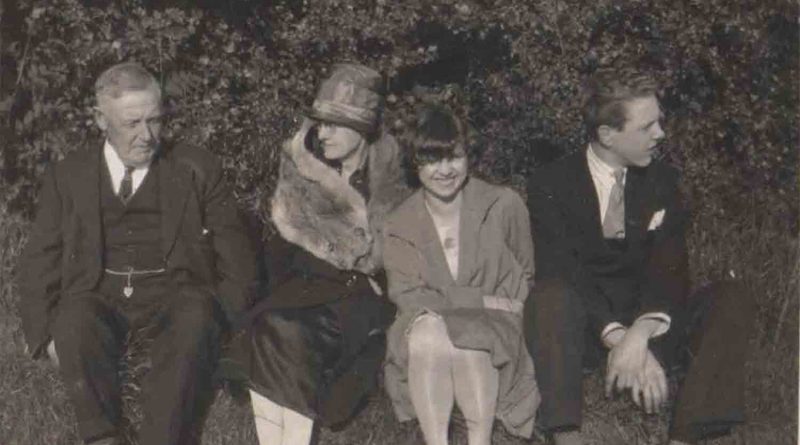Rosaline McCheyne: the unforgettable, forgotten East End Suffragette
We’ve all heard of Sylvia Pankhurst. But have you heard of Rosaline McCheyne? She was part of the East London Federation of Suffragettes who was a key part of the movement to win votes for women. Who exactly was she and why has history forgotten her, until now? Local writer Suyeon Kang investigates.
Most people, when they hear “the Suffragettes of the East End”, will think of those who engaged in methods of direct action on the frontlines of the cause such as Sylvia Pankhurst. Being direct was key. Go on marches, get arrested, and you would get noticed and create noise. However, behind all this noise was Rosaline McCheyne, essential but invisible – a different type of activist.
Rosaline McCheyne, wife to a woodworking teacher and mother of Bob, Georgina and Don, lived at 55 Fairfield Road in Bow. The very same house is still there today.
Being lower middle-class, Mrs. McCheyne lived a comfortable life. In fact, it was her privileges that opened her eyes to the deprivation and squalor in the East End of London.
Eighteen-year-old McCheyne had witnessed the Match Strikes in 1888 which saw the fight for better working conditions for the girls at Bryant and May Factory. Not only was it important to win better hours and better wages, one of the victories came from substituting yellow phosphorus with the red as the deadly yellow fumes led to a cruel disease known as ‘phossy jaw’ which referred to the disintegrating of bones, and ultimately, death.
Some 25 years later the East London Federation of Suffragettes (ELFS) would see McCheyne sign up to their membership. Little did they know she would soon become their most splendid activist and rock.
It was this inspiration and realisation that fuelled her to break out of stereotypical domestic housework and dedicate her efforts to activism for women. Some even say the fact that she only had three children, an unusually small number of children at the time not only allowed her more time to follow activism, but also showed how she defied the expectations of her era. And certainly, where we expect notable, important figures to be loud and on centre stage, McCheyne was most powerful when silent and behind the scenes.
Our heroine at 55 Fairfield Road was most unforgettable for the efforts she put in to change women’s lives in our area when it was at its worst during the First World War. Inflation surged as production plummeted, meaning only the rich could afford food; everyone else had no support.
What struck McCheyne the most was the inability for mothers to be able to afford milk for their babies, so this is where she, her colleague Mantle and the ELFS opened the Baby Clinic at St. Leonard’s street and saved the day for East End’s impoverished mothers.
Here, the mothers could bring their children in for check-ups, advice and feeding, and take away free milk, eggs and barley. It was a small, local project, but the impact was unmatched. Her activism did not stop there. McCheyne was responsible for the admin work of the ELFS.
She would organise pitches for the selling and distributing of the Woman’s Dreadnought (the ELFS newspaper) in the hopes of drawing in supporters and members. And this was not as “simple as it might sound” she said in an account of a day in her life. And yet, she could sell “more newspapers than any of the other districts”, from around twenty-eight a week to around a thousand in time.
McCheyne’s impact was undeniable. So, the most compelling question is, why? Why did we almost forget such an extraordinary character?
McCheyne became easily unrecognised because of her performances being off-stage. The May Day procession in 1914 is known for the protests lead by Sylvia Pankhurst and her bodyguards who were arrested and brutalised by police in Victoria Park.
However, what many do not know is that it was Rosaline McCheyne who gathered all the subscriptions and funds to bail each of them out back to their families. It is in this way that she has been left out of history: for not being noticeable, nor the face of women’s suffrage. But there is now a need to recognise her for being the foundation on which the women’s movement could rely on.
A quiet, ‘behind the scenes’ woman who had strength in her silence, dedication and generosity. This is Rosaline McCheyne.
Information for this article was taken from the local historian Jane McChrystal’s book ‘The Splendid Mrs. McCheyne’.
If you like this article, you might also like to read about the story of the local historian who uncovered the story of Rosaline McCheyne and her hidden, but crucial contributions to the Suffragette movement.


